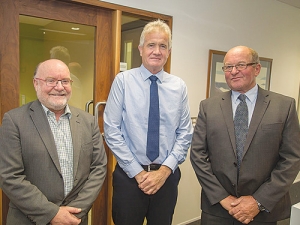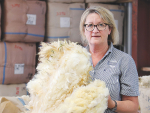Commercial sensitivity prevents Ian Cuthbertson – Wool Industry Research Ltd (WIRL) manager – from disclosing what the product(s) are, but he says it won't be traditional.
"I have been in the industry all my life and I have never been so excited to be honest. I feel privileged to be close to [the research]," he told Rural News.
"It is the last hurrah for the industry; if we can't pull it off this time I think we will be struggling to get government support again for wool specifically."
Commercial partners will decide when to go public, but he hopes the good news about wool will be out within 6-8 months and onwards.
Product in prototype form is expected to be in the marketplace in six to 12 months and in meaningful volumes in 18 to 24 months.
This would be one positive outcome of the $21m partnership between WIRL and the Ministry of Business, Innovation and Employment (MBIE).
The focus of the $21m research spending will be on new ways to use wool as a source of high value keratin. The partnership will also work with traditional manufacturing industries to develop new technical textiles.
Cuthbertson says commercialisation could be through a range of partners.
"In the first instance we have some prior work co-funded by NZ Wool Services International, so they will be looking to work with us to get their IP to a point where it could be commercialised."
Much of the research is in discovery, and depending on outcomes WRONZ and its subsidiary WIRL will look to get commercial partners on board promptly.
Cuthbertson says the research partnership is "fantastic" news for the wool industry.
Wool used to be 80-100% of the local carpet manufacturers' business; now it is 15-20% maximum.
"We just can't rely on traditional industry for crossbred wool utilisation; it is disappearing very rapidly. It has to be good news [for farmers] that WRONZ and our board have identified totally non-traditional uses and high value; the key thing is we are looking at high volume.
"Where we can create something worth $100/kg from 1kg of crossbred wool that is interesting, but if it uses only a tonne or two it's not going to affect prices paid to growers.
"We are looking at applications that will use millions of kilos. To rescue sheep farming we have to be in that ballpark."
He says he is certain that could happen. The work in the first consortium was proof of principle; the new consortium is exploring options and optimising and creating new materials consumers want.
Research has started in the new uses project with Agritech, Lincoln, as the core contractor and Dr Robert Kelly leading that work; further contracts with others are being signed now under the new partnership.



















